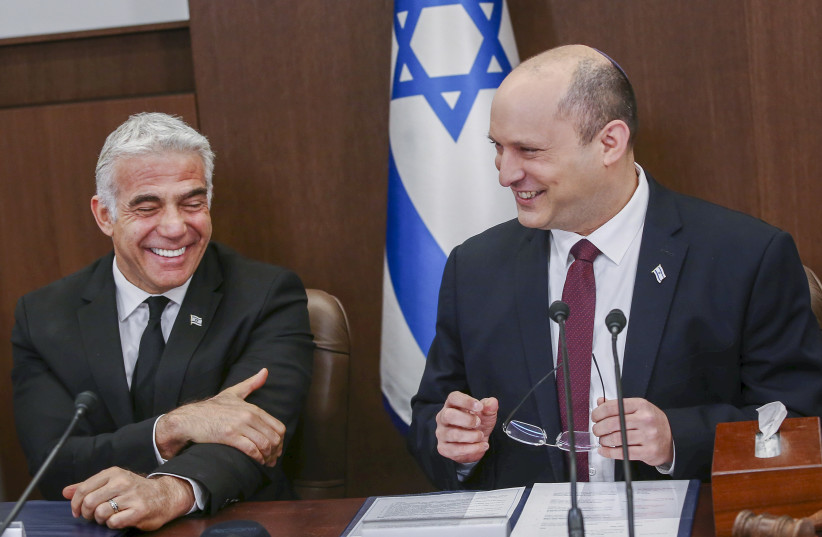The next government is likely to continue some of its predecessors’ key regional policies if Likud leader Benjamin Netanyahu forms a coalition, as expected.
Netanyahu expressed sharp opposition to the Lebanon maritime demarcation agreement shortly before it was set to be signed, calling it “terms of surrender.”
However, when the deal was finalized last week, Netanyahu said he would “behave as [he] did with the Oslo Accords.” When Netanyahu became prime minister in 1996, he fulfilled the previous government’s commitment that Israel would mostly withdraw from Hebron, following negotiations in which he demanded the Palestinians pledge to stop terrorism.
Netanyahu’s attitude towards the Oslo Accords as prime minister can be summed up in a statement he made at the time: “If they give, they will get; if they don’t give, they will not get.” Netanyahu repeated this call for reciprocity several times in his autobiography published last month, and as such, is likely to be his approach to the Lebanon agreement, as well.
US President Joe Biden provided Prime Minister Yair Lapid with a letter of guarantees over the weekend that would likely limit Netanyahu’s ability to change the deal. The letter backs up the Lebanon agreement and states that the US is committed to supporting the IDF and strengthening its ability to defend Israel, including against threats to its ships and energy assets.
Lebanon’s caretaker Prime Minister Najib Mikati told Reuters on Wednesday that the US guarantees protect the maritime boundary deal.
Israel-Turkey relations under the Bennett-Lapid government
Israel-Turkey relations also flourished under the Bennett-Lapid government, after over a decade of languishing. Lapid met with Turkish President Recep Tayyip Erdogan in Ankara and the countries agreed to reinstate ambassadors, following close cooperation to foil an Iran-backed terrorist plot to abduct Israeli tourists in Istanbul.
Erdogan said on Wednesday that he "expect[s] to sustainably maintain our relations with Israel based on mutual respect for sensitivities and shared interests, no matter how the election turns out."
"As long as values are respected, I believe win-win diplomacy will benefit not only Türkiye and Israel but also the entire region," Erdogan stated.
"As long as values are respected, I believe win-win diplomacy will benefit not only Türkiye and Israel but also the entire region."
Turkish President Recep Tayyip Erdogan
The decline began soon after former prime minister Ehud Olmert met with Erdogan in 2008, and the IDF launched Operation Cast Lead two days later to stop Hamas from shooting missiles at Israeli civilians. Erdogan viewed the proximity of events as a betrayal.
However, relations reached their lowest point under Netanyahu’s premiership in 2010, in the wake of the Mavi Marmara raid, in which IDF commandos boarded a ship that was aiming to break the blockade on Gaza. In the ensuing hand-to-hand combat, the commandos killed nine armed activists from an organization affiliated with Erdogan.Netanyahu eventually apologized to Erdogan, under pressure from Washington, but diplomatic relations never fully recovered. Ambassadors were reinstated in 2016, but less than two years later, Turkey expelled Israeli Ambassador Eitan Na’eh – now Israel’s envoy to Bahrain – in protest of the IDF’s response to Palestinian rioting on the Gaza border, and Israel responded in kind.

